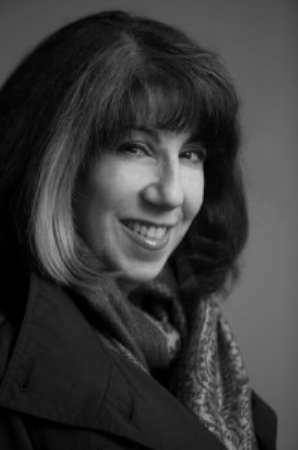WomensHistoryReads interview: Renee Rosen
Today's #WomensHistoryReads guest is Renee Rosen. She's an author of many talents, particularly skilled at bringing Chicago history to life in books like DOLLFACE (1920s), WHAT THE LADY WANTS (1890s), WHITE COLLAR GIRL (1950s), and WINDY CITY BLUES (1960s). Her next project is a departure from that pattern -- which she talks about in her interview below. Welcome, Renee!
Renee Rosen (credit: Charles Osgood Photography)
Greer: What do you find most challenging or most exciting about researching historical women?
Renee: I know some authors hand off the research aspect of their work to an intern or assistant but I can’t imagine not doing the research myself. That's something I truly love about my job. The most exciting part is the element of discovery. You just never know what you’ll stumble upon and some seemingly insignificant detail could end up greatly impacting your story.
I love discovering courageous women, especially the lesser known women, and find myself deeply humbled after learning about their struggles and the difficulties they overcame. Though we still have many of our own obstacles today, it’s easy to take for granted the sacrifices they made in order for us to lead the lives we do. I get absolutely lost in another time and place. Getting the details right, down to the clothing and social mores right is especially challenging.
My last few books have been set in the '40s, '50s and '60s and many readers were alive and well during those time periods and they know it well. If you don’t get your details right, you’ll lose them right there on the page. I think that’s why I especially love hearing from readers who say I took them back in time and reminded them of their childhoods.
Greer: How would you describe what you write?
Renee: I would say that first and foremost, I write historical fiction, usually (but not always) centered around strong female characters—both real and fictional. I tend to do a blended type of writing where I weave my fictional characters into stories based on real events and real people. It’s always gratifying when readers tell me they googled my fictional characters because they thought they were real. Making that aspect seamless is a real challenge. It’s really important that they don't feel plugged in. And because I tend to mix fiction with non-fiction, I always include an extensive author’s note at the end of each book, explaining where I took creative license so readers can separate facts from fiction.
Greer: Always a good plan. What’s your next book about and when will we see it?
Renee: My upcoming book, PARK AVENUE SUMMER, is a historical novel coming from Penguin Random House /Berkley in May 2019.
I’m super excited about this novel for many reasons. Here’s a brief description:
New York City in 1965 is filled with opportunities for single girls like Alice Weiss who leaves her small Midwestern town and lands the job of a lifetime working for the first female Editor-in-Chief of Cosmopolitan Magazine, Helen Gurley Brown.
Nothing could have prepared Alice for the world she enters as editors and writers resign on the spot, refusing to work for the woman who wrote the scandalous bestseller Sex and the Single Girl, and confidential memos, article ideas, and cover designs keep finding their way into the wrong hands. When someone asks Alice to help sabotage her boss, she is more determined than ever to help Helen succeed. While pressure mounts at the magazine and Alice struggles to make her way in New York, she’s quickly learning that in Helen Gurley Brown’s world, a woman can demand to have it all.
Greer: What a fascinating premise!
Renee: And now a question for you. Can you describe your writing process? For example, are you an outliner, do you write longhand first, do you conduct all your research up front or do it hand-in-hand with your writing?
Greer: I could describe my writing process in one word: sloppy. I make a mess, but I do it quickly, and then I spend months and months cleaning it up. I do usually start from a synopsis -- GIRL IN DISGUISE and my next book WOMAN NINETY-NINE were both sold on a synopsis and sample pages. I have a plan, and then as I write it, I change the plan. I write only on the computer because my fingers can't keep up with my brain in longhand, but at a certain point in the process -- usually once I have that first messy-but-complete-ish draft -- I have to print it out and mark it up. Then the multicolor Post-Its come out. There's something tactile about that stage.
Research goes in a few waves, and I try to do the most substantial work before I even start writing. So for example, with GIRL IN DISGUISE I read everything there was to read on Kate Warne. I watched movies and read books about the time period. I read up on Allan Pinkerton and the cases his agents were working at the time I was writing about. Then I began. But for Chicago street names, for example -- that kind of detail work -- I waited until I knew which scenes were actually going to make it into the final draft. Then I found a map from 1856 and went to town, so to speak.
For more on Renee and her books, visit her website at reneerosen.com.
